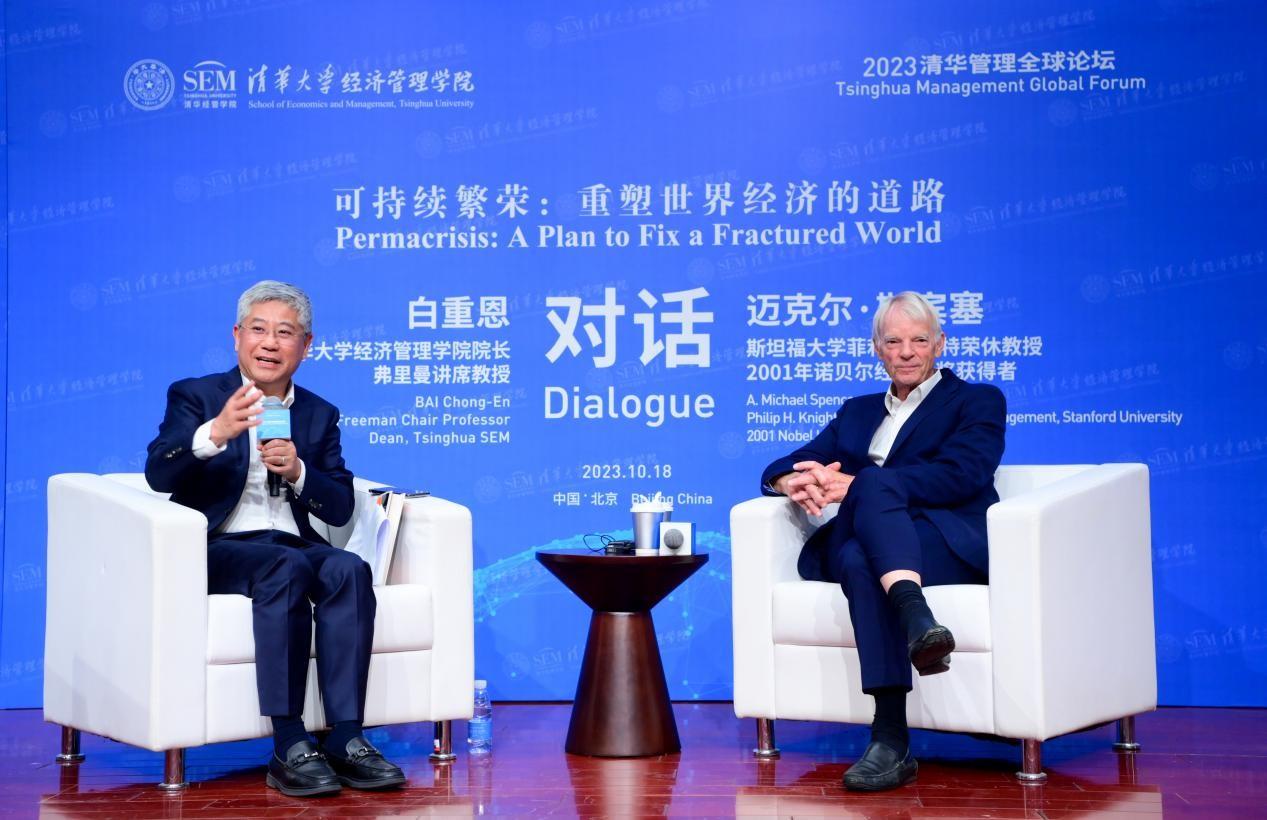2023 Tsinghua Management Global Forum focuses on fixing world economy
- By Liu Jianing
 0 Comment(s)
0 Comment(s) Print
Print E-mail China.org.cn, October 20, 2023
E-mail China.org.cn, October 20, 2023
The 2023 Tsinghua Management Global Forum was held in Tsinghua University on Wednesday. The forum featured a dialogue with Michael Spence, professor emeritus of management of Standard University and 2001 Nobel laureate in economics, who shared his insights on ways to fix the world economy.

Michael Spence, professor emeritus of management of Standard University and 2001 Nobel laureate in economics, gives a keynote presentation at the 2023 Tsinghua Management Global Forum in Beijing on Oct. 18, 2023. [Photo provided to China.org.cn]
In his keynote presentation on future world economy, Spence gave an in-depth analysis on major changes in the supply side and productivity, as well as the long period of inflation, the aging issue, and technological advances including AI.
Spence observed that the global economy is slowing down. He cited some examples illustrating supply disruption and the bottleneck of supply chain balance. In addition, inflation has emerged as a major issue in the post-pandemic era, caused by huge surge in demand and central banks' interest rate hike, he said.
The 35 years of huge injections of productive capacity is coming to an end in this next year, said Spence. Other issues including aging and declining workforce also dragged world economy.
Spence noted that scientific and technological breakthroughs will produce a major change. As for sustainability, huge amount of new technologies associated with massive energy transition is another major transformation happening worldwide, and China has played a major role in driving solar prices down, he said.

Michael Spence (R), professor emeritus of management of Standard University and 2001 Nobel laureate in economics, and Bai Chongen, dean of the School of Economics and Management of Tsinghua University, hold a dialogue during the 2023 Tsinghua Management Global Forum in Beijing on Oct. 18, 2023. [Photo provided to China.org.cn]
During the dialogue session, Spence and Bai Chongen, dean of the School of Economics and Management of Tsinghua University, discussed topics such as the latest development of AI technologies, China's communication with the rest of the world, and globalization.
Responding to a question about AI by Bai, Spence said that generative AI such as ChatGPT represents technological breakthroughs and shall facilitate humanity as a digitalized assistant rather than replace humanity, Spence said.
Currently, developing AI requires a huge amount of resources, and digital divide has emerged as a major issue in global AI development, as some countries still face difficulties in training large language models. Spence said that the issue should be taken seriously and included in policy agendas.
In addition, Spence proposed the concept of managed globalization, noting that a flexible policy and supervision should be adopted, since the world economy cannot sustain fast growth after World War II as it is confronted with multiple changes and uncertainties in the supply side. Technological breakthroughs may provide a possible solution, he said.






Go to Forum >>0 Comment(s)